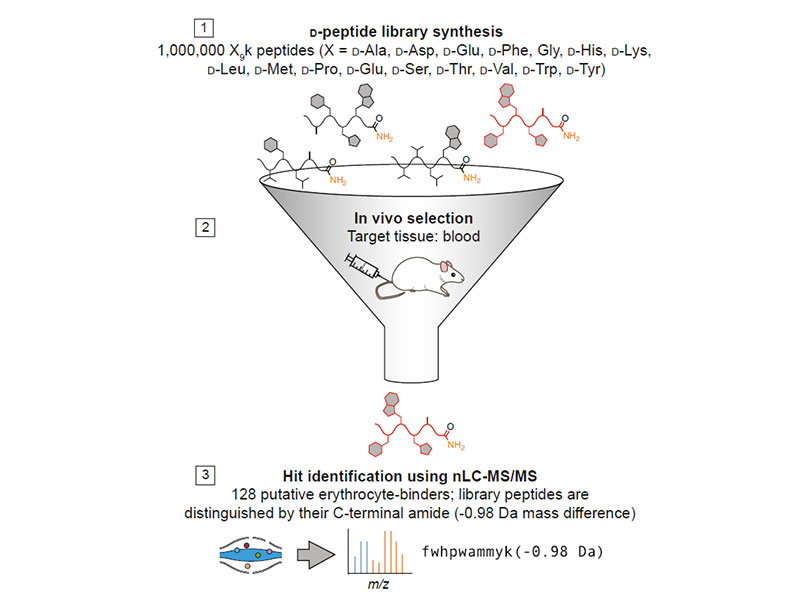
An in vivo selection-derived D-peptide for engineering erythrocyte-binding antigens that promote immune tolerance

An in vivo selection-derived D-peptide for engineering erythrocyte-binding antigens that promote immune tolerance
August 20, 2021 | 118 (34) e2101596118 | https://doi.org/10.1073/pnas.2101596118
Alexander R. Loftis, Genwei Zhang, Coralie Backlund, Anthony J. Quartararo, Novalia Pishesha, Cameron C. Hanna, Carly K. Schissel, Daniel Garafola, Andrei Loas, R. John Collier, Hidde Ploegh, Darrell J. Irvine, and Bradley L. Pentelute
Abstract
When displayed on erythrocytes, peptides and proteins can drive antigen-specific immune tolerance. Here, we investigated a straightforward approach based on erythrocyte binding to promote antigen-specific tolerance to both peptides and proteins. We first identified a robust erythrocyte-binding ligand. A pool of one million fully D-chiral peptides was injected into mice, blood cells were isolated, and ligands enriched on these cells were identified using nano-liquid chromatography–tandem mass spectrometry. One round of selection yielded a murine erythrocyte-binding ligand with an 80 nM apparent dissociation constant, Kd. We modified an 83-kDa bacterial protein and a peptide antigen derived from ovalbumin (OVA) with the identified erythrocyte-binding ligand. An administration of the engineered bacterial protein led to decreased protein-specific antibodies in mice. Similarly, mice given the engineered OVA-derived peptide had decreased inflammatory anti-OVA CD8+ T cell responses. These findings suggest that our tolerance-induction strategy is applicable to both peptide and protein antigens and that our in vivo selection strategy can be used for de novo discovery of robust erythrocyte-binding ligands.



